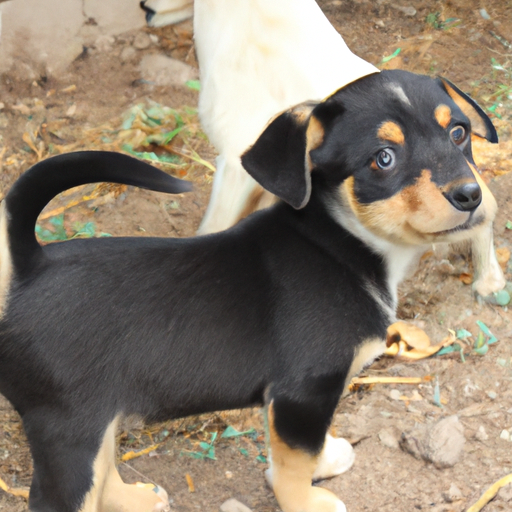Understanding Puppyhood
You’ve likely found yourself wondering, “when do dogs stop being puppies?” As a caregiver to your furry friend, it’s crucial to understand that the puppy phase isn’t just about physical growth—it’s also about their mental and emotional development.
Dogs are typically considered puppies from birth until they’re about one year old, but this can vary. Smaller breeds often mature faster than larger ones, so they may stop being puppies sooner.
Physical Growth
Your puppy’s physical growth is an essential part of their maturation process. During this phase, you’ll observe your puppy growing rapidly, their limbs becoming longer, and their features more defined.
Here’s a simple table that outlines the physical growth of different dog breeds:
| Breed Size | Approximate Age When Physical Growth Stops |
|---|---|
| Small Breeds | 6-8 months |
| Medium Breeds | 12 months |
| Large Breeds | 12-18 months |
| Giant Breeds | Up to 24 months |
Emotional and Mental Development
Your dog’s emotional and mental development is just as important, if not more so, than their physical growth. This is when they learn about the world around them, develop their personality, and form bonds with you and other animals.
You might notice your puppy’s behavior changing over time, this is a sign of them growing out of their puppyhood.
Training and Socialization
During their puppy phase, dogs are most receptive to training and socialization. This is the ideal time to teach them basic commands, housetrain them, and introduce them to different people, places, and experiences.
- Basic Commands: Start with simple commands like “sit,” “stay,” and “come.”
- Housetraining: Establish a routine for meals and bathroom breaks.
- Socialization: Expose your puppy to different environments, people, and animals.
Health Care
As your puppy grows, their healthcare needs will change. During their first year, they’ll require a series of vaccinations, regular check-ups, and eventually, spaying or neutering.
Here are some key healthcare milestones:
- First Vaccinations: Usually given at around 6-8 weeks of age.
- Booster Shots: Typically administered 2-4 weeks after the first vaccinations.
- Spaying/Neutering: Generally recommended between 6 months to a year old.
Nutrition
Feeding your puppy the right food is crucial for their growth. Puppies typically need a diet rich in protein and fat. As they grow, their dietary needs will change. For instance, once they’re about 90% of their expected adult weight, you can gradually switch them to adult dog food.
Transitioning From Puppyhood to Adulthood
This is a gradual process, and you’ll likely notice changes in their behavior, size, and health needs. As they mature, they may become less hyperactive, more independent, and their growth rate will slow down.
FAQ
Q: When is a dog no longer a puppy?
A: Generally, dogs are considered adults when they’re one year old. However, this can vary depending on the breed.
Q: How can I tell if my dog is still a puppy?
A: Look for signs like rapid growth, teething, and playful, hyperactive behavior. If you’re unsure, a vet can help determine your dog’s stage of life.
Q: My dog is an adult now. Does this change how I should care for them?
A: Yes, adult dogs have different healthcare, dietary, and exercise needs than puppies. It’s always a good idea to consult with a vet for specific advice.
Q: How should I prepare for my puppy becoming an adult?
A: Start by gradually changing their diet to adult dog food once they’re near their adult size. Also, adjust their exercise routine as needed, and keep up with regular vet checkups.
In conclusion, you’re on a fascinating journey as your puppy matures into an adult dog. With the right care and attention, you can ensure they have a smooth transition from playful pup to mature pet.



